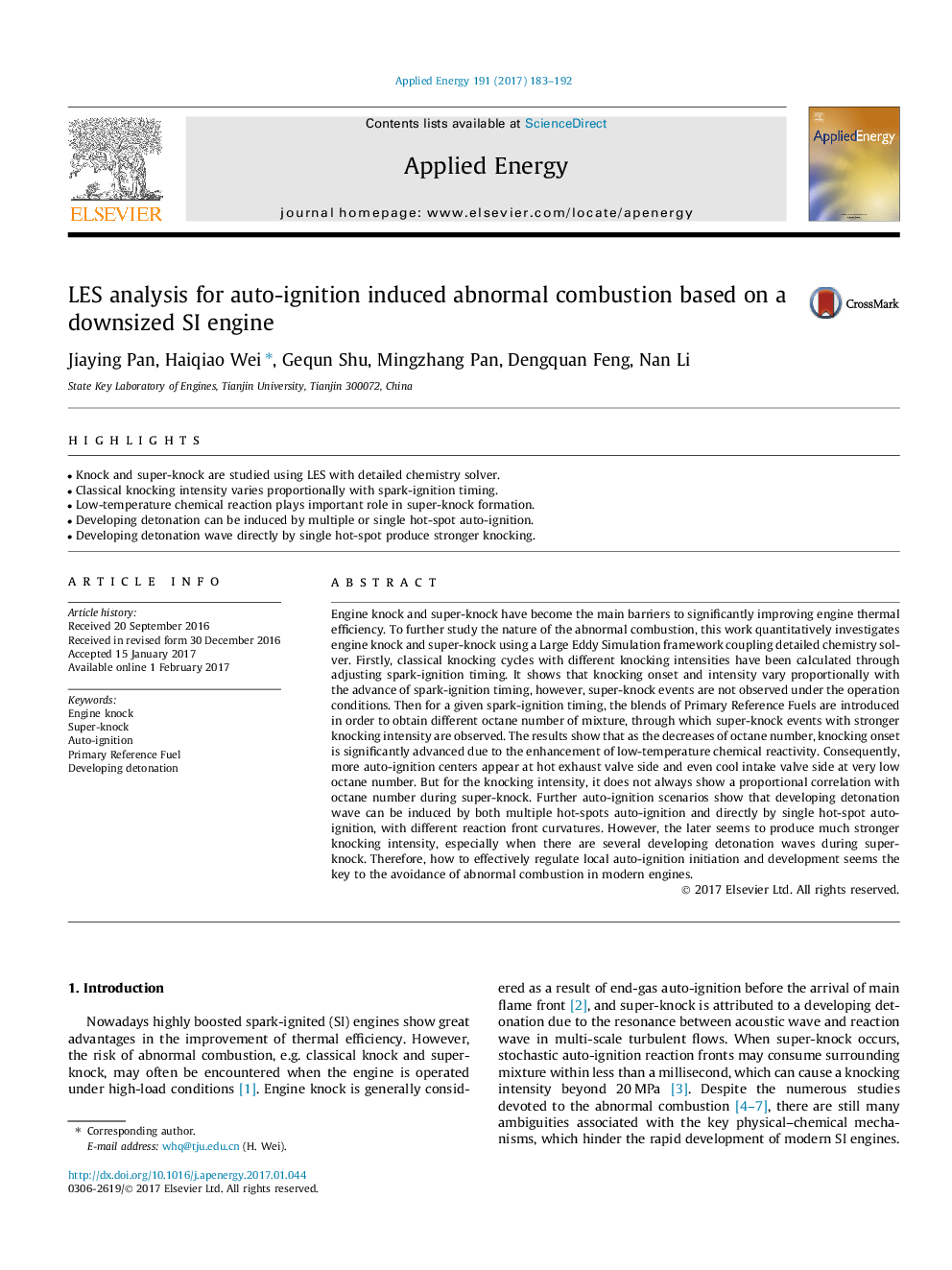| Article ID | Journal | Published Year | Pages | File Type |
|---|---|---|---|---|
| 6478734 | Applied Energy | 2017 | 10 Pages |
â¢Knock and super-knock are studied using LES with detailed chemistry solver.â¢Classical knocking intensity varies proportionally with spark-ignition timing.â¢Low-temperature chemical reaction plays important role in super-knock formation.â¢Developing detonation can be induced by multiple or single hot-spot auto-ignition.â¢Developing detonation wave directly by single hot-spot produce stronger knocking.
Engine knock and super-knock have become the main barriers to significantly improving engine thermal efficiency. To further study the nature of the abnormal combustion, this work quantitatively investigates engine knock and super-knock using a Large Eddy Simulation framework coupling detailed chemistry solver. Firstly, classical knocking cycles with different knocking intensities have been calculated through adjusting spark-ignition timing. It shows that knocking onset and intensity vary proportionally with the advance of spark-ignition timing, however, super-knock events are not observed under the operation conditions. Then for a given spark-ignition timing, the blends of Primary Reference Fuels are introduced in order to obtain different octane number of mixture, through which super-knock events with stronger knocking intensity are observed. The results show that as the decreases of octane number, knocking onset is significantly advanced due to the enhancement of low-temperature chemical reactivity. Consequently, more auto-ignition centers appear at hot exhaust valve side and even cool intake valve side at very low octane number. But for the knocking intensity, it does not always show a proportional correlation with octane number during super-knock. Further auto-ignition scenarios show that developing detonation wave can be induced by both multiple hot-spots auto-ignition and directly by single hot-spot auto-ignition, with different reaction front curvatures. However, the later seems to produce much stronger knocking intensity, especially when there are several developing detonation waves during super-knock. Therefore, how to effectively regulate local auto-ignition initiation and development seems the key to the avoidance of abnormal combustion in modern engines.
